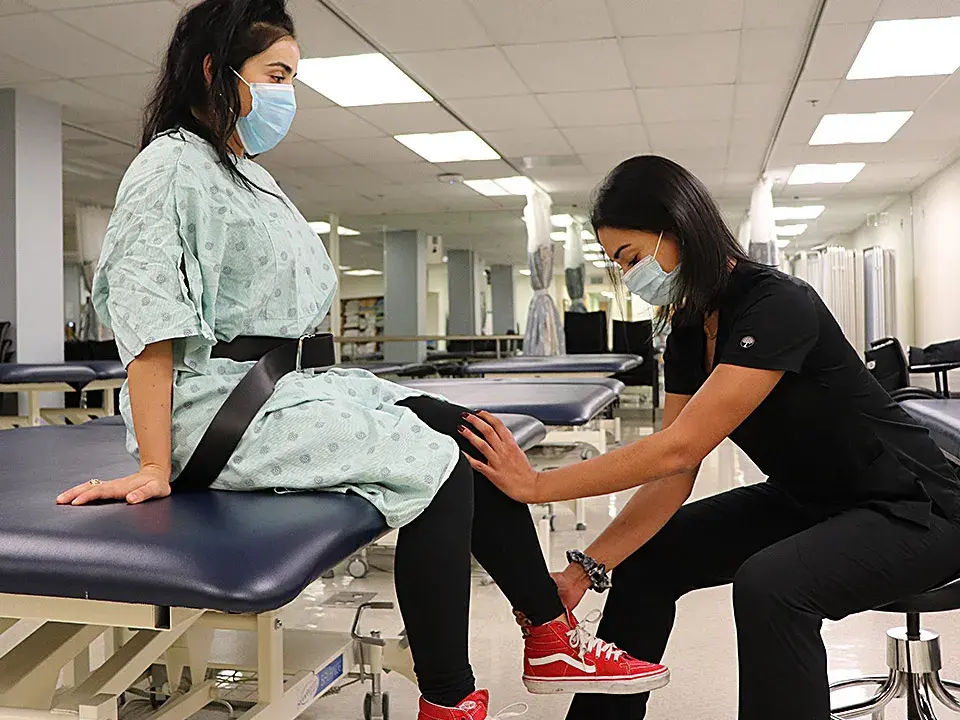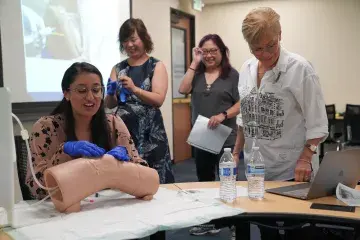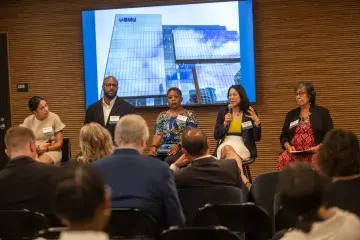Facing COVID-19 as a Student Physical Therapist

Like many healthcare students during the COVID-19 pandemic, my Doctor of Physical Therapy program clinical experience prior to my graduation was affected.
My first clinical experience was in outpatient orthopedics at Kaiser, Fremont. I was terminated one-and-a-half weeks shy of finishing because of the coronavirus. Thankfully, I had already completed my requirements for the rotation. My second clinical rotation was scheduled to be in acute care, at a Veteran’s Affairs hospital in Martinez, which was required for me to graduate. I completed the onboarding process, received confirmation that students were still allowed at the site, and felt grateful that I still had a clinical rotation to participate in. My classmates were all receiving notices that their clinicals had been canceled.
As my start date neared, I became increasingly nervous that I could be exposed to the coronavirus. I live at home with my family, including two younger siblings and my father who is immunocompromised. Many thoughts and anxieties raced through my mind. What if I was responsible for bringing home the virus?
Most difficult decision
During this time, in early March, there were still many unknowns about the transmission, severity, and virulence of coronavirus. As I was deciding whether I was willing to risk my health, as well as my family’s health, I was notified that my VA hospital rotation was canceled. I experienced a wave of emotions, including shock, panic, and slight relief. My directors of clinical education (DCEs), who I was in constant communication with, told me that it was a very difficult time to find alternative placements. Most facilities, especially inpatient facilities were not taking students, it was too much of a liability. Many students in the class below me were without clinical placements, but I was assured that I would be prioritized because my graduation depended on it.
A few days later, one of my DCEs found a new clinical site for me in long-term acute care at Kentfield Hospital in Marin County. I was thankful there was a site that was accepting students, but the anxiety of facing the coronavirus still prevailed. I was given an option: 1) I could follow through with this placement and graduate on time, or 2) I could wait until the coronavirus pandemic quieted down and postpone my graduation. This was one of the most difficult decisions I’ve ever had to make. Luckily, I didn’t have to make it alone. I spoke to both my DCEs, my future clinical instructor (CI) at Kentfield, family members, and friends. I explained the details of my situation and my anxieties about COVID-19.
Make safety a routine
The best piece of advice that I received was from my DCE who said, “You can be in control of how you respond to this virus. You can formulate a specific routine and take extra precautions to feel safe.”
I was advised to create a routine that included: having specific hospital shoes that don’t touch anything except the hospital floor, changing out of my scrubs prior to entering my home, washing my scrubs separately and storing them outside, and social distancing from my family members. I realized that I could control the spread of this virus if I practice proper hygiene, hand washing techniques, and sanitization measures. My CI at Kentfield assured me they had plenty of personal protective equipment. Kentfield had also implemented a strict rule to wear a surgical mask at all times. With my newfound perspective, I decided to follow through with my rotation.
A few weeks into my rotation, after I warmed up to the hospital environment, my sanitization measures became routine. I realized that the anxieties I had were probably shared among all healthcare professionals, and that it was part of life as a healthcare worker. Nobody signed up to battle the coronavirus when they decided to be a healthcare worker. I felt honored to be joining into a profession that so selflessly and courageously fights for their patients. What started out as a frantic moment turned into an inspirational one and reaffirmed that joining the physical therapy profession was meant for me.


